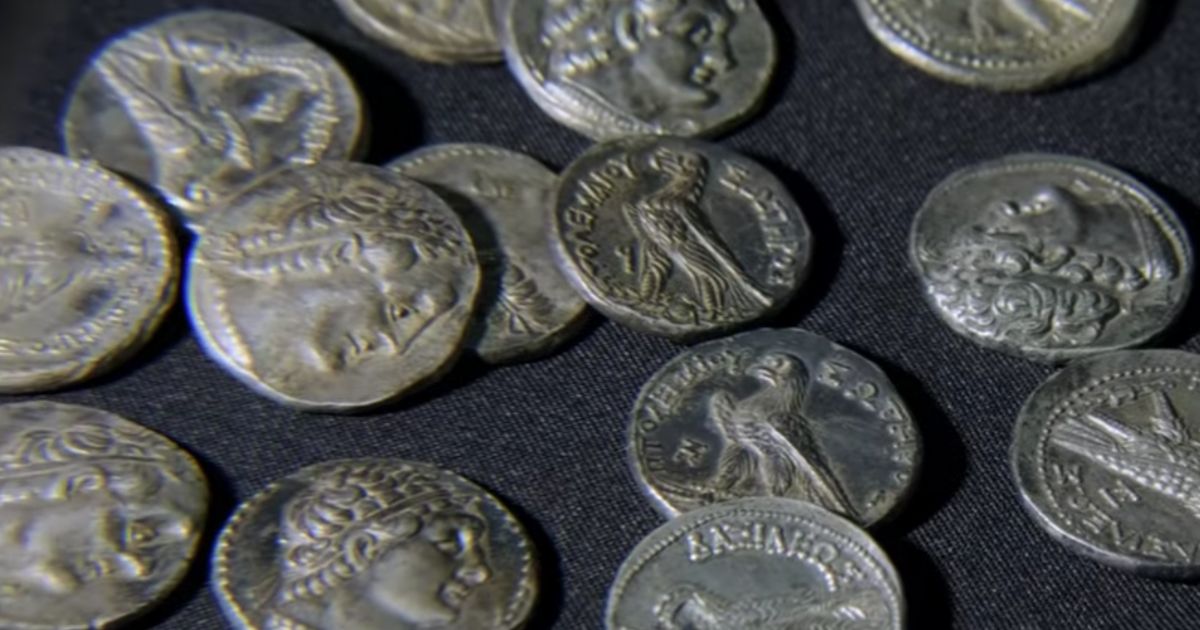A new archaeological find in Israel attests to events described in the ancient Book of Maccabees, found in the Old Testament of some Bibles.
A team of excavators from the Israel Antiquities Authority uncovered a wooden box containing 15 silver coins in a cave overlooking the Dead Sea this spring, according to the Israeli government.
“This is an absolutely unique find, presenting the first clear archaeological evidence that the Judean Desert caves played an active role as the stage of the activities of the Jewish rebels or the fugitives in the early days of the Maccabean Revolt, or the events that led up to them,” the government announcement said.
The coins — thought to be minted around 170 B.C — date to the reign of Ptolemy VI, a Greek king who ruled modern-day Egypt when the region was administered by the heirs of Alexander the Great, according to the Times of Israel.
The Book of Maccabees describes a revolt on the part of Jews against the Greek Seleucid Empire in the following years. At the time, Judea was ruled as a Seleucid province.
The movement of Maccabees described in the text objected to the Seleucid introduction of Hellenistic polytheism in Judea, instead advocating for Jewish monotheism.
Some Christian churches, including Catholic and Orthodox, hold Book of Maccabees to be canonical, but Protestant denominations and most branches of Judaism do not.
Archaeologists are pointing to both the location of the coin stash and their contemporary value (thousands of modern-day American dollars) as historically significant.
The container in question also contains purple-dyed cloth and wool stuffing — preserved in excellent condition by the region’s desert climate.
It’s thought that the stashing of coins in a desolate cave amounts to an act for desperate times — such as the war between the Seleucid Empire and the Jewish Maccabees.
“In general when we find a cache of coins, they tell us a story of war. Otherwise people don’t run off and leave their life savings,” archaeologist Eitan Klein said of the historical context of the find, according to the Times of Israel.
“Here, we have good proof that people really were fleeing,” Klein said of the find, adding that he believes the coins’ owner died in the violence that surrounded the Maccabean revolt, so was unable to come back for the stash.
“Every time there was a war or a traumatic event, people fled to the desert and hid in caves, which were their ‘safe rooms.’ They’d leave their homes, and take only their important items,” Klein explained.
Secluded from civilization, the Dead Sea cave of Wadi Muraba’at, where the coins were found, would’ve made an excellent hiding place, according to Klein.
Maccabees I describes an exodus of Jews from Jerusalem in the midst of the revolt, with righteous men of Israel taking up hiding places in the desert.
The revolt in question ultimately succeeded — with the Israelite nation overthrowing the Greek yoke and achieving self-government under the native Hasmonean dynasty of kings.
The story described in Maccabees serves as the inspiration for the holiday of Hanukkah, still celebrated in Judaism today.
This article appeared originally on The Western Journal.

























 Continue with Google
Continue with Google